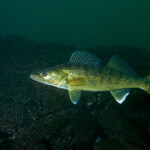MSC undertaking review of its fisheries standard
The Marine Stewardship Council is looking into changes to the requirements of the its standards for certifying fisheries as sustainable.
The MSC has initiated a review of its fisheries standard, a process the organization undertakes every five years. On Tuesday, 25 September, it released its terms of reference for the review, which outlined which parts of its standard it will look at in detail – a first step in a potentially three-year-long process of revision.
“The review and potential revision process must include all interested parties and balance the diverse needs and views of many different organizations. As well as ensuring that performance levels are set appropriately in key areas, the accessibly and effectiveness of the standard will be reviewed with the aim to achieve sustainability outcomes while reducing complexity and barriers to participation,” Fisheries Standard Director Rohan Currey said in a press release. “The MSC is committed to the inclusion of underrepresented stakeholders in the FSR, and impact testing will form an important part of the review.”
Based on suggestions collected since 2013, the MSC will review the efficiency and effectiveness of its standard, and will verify the standard is operating according to best practices as outlined by the most current biological and fisheries management science.
The organization’s investigation of its efficiency will focus on possible redundancy or overlap in its scoring system, and will also look into reducing its complexity and bringing it into line with the capabilities of new digital tools that may be able to improve data management, the MSC said.
Its review of the standard’s effectiveness will center on maximizing consistency of the standard, especially in how it is applied by independent, third-party fisheries assessors.
MSC's look at best practices will involve ensuring its standard best insures sustainability. Aspects of this review will include studying how interactions with endangered, threatened, and protected species are addressed by the standard; the appropriateness of the standard in assessing the sustainability of fisheries that have not been certified by the MSC and those just beginning to show interest, such as fisheries for squid and octopus. The so-called “evolution” review will also determine how the standard interacts with global, national, and regional governance, including varied approaches to combating illegal, unreported, and unregulated (IUU) fishing.
Collectively, these terms of reference will now be investigated by technical experts commissioned by the MSC, working in collaboration with the MSC Technical Advisory Board and MSC Stakeholder Advisory Council, according to the group. Following their work, the MSC Board of Trustees will decide whether to change any part of the standard. If the board votes to make changes, revisions to the standard will then be developed in consultation with stakeholders including fisheries, NGOs, retailers, commercial partners, and scientific experts, according to the organization.
The MSC noted this fisheries standard review differs in scope from its fishery certification process review, which culminated in August 2018 with a rejection of a proposed policy reform of its certification standard by its stakeholders.
The change to its Unit of Assessment requirements would have prohibited the catch of MSC-certified and non-MSC certified fish in the same vessel trip, a process known as “compartmentalization” that has been criticized by some non-governmental organizations. However, it was defeated by stakeholders who “felt it would be difficult to apply in fisheries,” Curry said in a statement.
In an email to SeafoodSource, MSC spokesperson Jackie Marks said her organization has delayed changing the Unit of Asssessment and will review alternatives over the next six months.
“The MSC Board has decided to delay any changes to requirements on Unit of Assessment or related requirements pending further research, development and impact testing of further options by the MSC. Consultation has shown that more time is needed to consider alternative options and carry out further impact testing,” Marks said. “In July 2018 the MSC Board discussed a range of other possible options to address. Reflecting its commitment to addressing concerns about artificial compartmentalisation, the Board has instructed the MSC to investigate alternative options over the next six months and propose a new solution which will be presented for formal, public consultation.”






Share